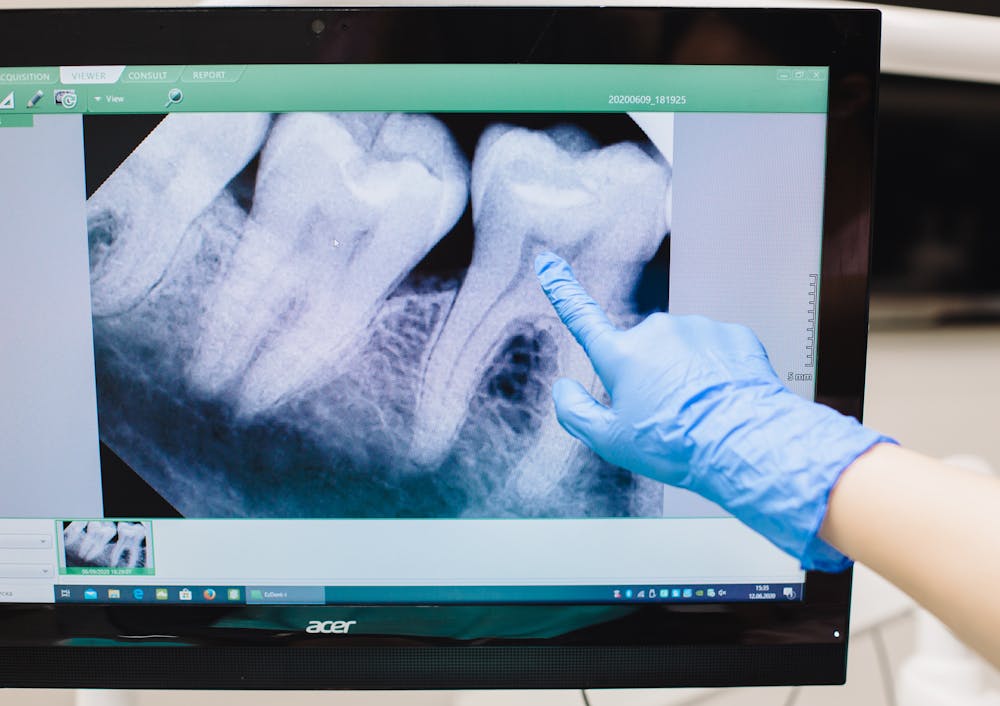Tooth decay is a common dental issue, but the implications are far-reaching when it becomes a focal point in legal matters. The Suboxone dental lawsuit has brought attention to the alleged link between the medication and severe dental problems, sparking legal actions across the country.
In this article, we’ll delve into the heart of the matter, examining the claims, controversies, and potential outcomes of this complex case.
Understanding Suboxone and Dental Health
Suboxone, a medication used to treat opioid addiction, contains chemicals named buprenorphine and naloxone. While Suboxone has been effective in helping individuals overcome opioid dependence, concerns have arisen regarding its impact on dental health. Using Suboxone for a long period may lead to dry mouth, ultimately increasing the risk of dental issues and gum problems.
Moreover, the sugar content in suboxone film strips could contribute to dental issues if proper oral hygiene is not maintained. Understanding these potential effects is crucial for patients and healthcare providers to mitigate risks and promote overall dental health.
According to the FDA, there can be dental problems with the use of medicines that contain buprenorphine and are dissolved in the oral cavity. These dental problems include cavities, tooth decay, oral infections, and tooth loss. These dental issues can be serious, even for people who never had dental problems before. The FDA issued this warning on Jan 12, 2022.
Emergence of Tooth Decay Claims
Numerous reports of patents experiencing quick tooth decay, gum ailments, and other serious dental problems. It has led to a growing number of legal claims against the suboxone manufacturers. These claims allege that Suboxone’s ingredients or formulation may be causing or contributing to these dental problems.
According to Drug Watch, 44 suboxone lawsuits were registered and progressing in MDL within the Northern District of Ohio as of April 2024. As of now, the court has not approved or settled any Suboxone cases. Also, no trials have been scheduled so far.
As more cases come to light, the spotlight on Suboxone’s potential impact on dental health intensifies. It continues raising important questions about patient safety and medication side effects.
Legal Landscape of the Suboxone Dental Lawsuit
The legal landscape of the Suboxone dental lawsuit is quite complicated. TruLaw says that the accusers are alleging the manufacturers have failed to sufficiently warn them about the potential hazards of Suboxone. People who are filing Suboxone dental lawsuits have developed serious dental issues after using Suboxone.
These Suboxone tooth decay lawsuit claims involve allegations of negligence, strict liability, and failure to warn, among other legal theories.
After the warning issued by the FDA on Jan 12, 2022, a series of dental problems were reported with the use of sublingual Suboxone. It is a strip that comprises buprenorphine and dissolves in the mouth, looking more like a breath-freshening tablet.
Only after this warning, a series of lawsuits started raising concerns about patient safety and medication’s side effects. If any of you have a similar problem, you can contact a lawyer and file a Suboxone tooth decay lawsuit.
Scientific Research and Findings
According to the National Library of Medicine, each day, 200 people die in the U.S. due to opioid overdose. There are only three medications approved by the FDA for combating opioid addiction, and buprenorphine is one of them. It is of utmost importance because it is a partial opioid agonist, even with its small dose. Buprenorphine is most commercialized and sold along with Suboxone. Suboxone also contains naloxone, which is a non-selective opioid antagonist.
According to Peace Valley Recovery, Suboxone can significantly reduce the risk of fatal opiate overdoses, showing an estimated 38% reduction in such incidents. However, there are side effects, as well as pros and cons, associated with the medicine. It has been specifically linked with dental problems.
Some studies suggest that the buprenorphine in Suboxone can lead to dry mouth and increase the risk of dental problems. Other research points to the sugar content in Suboxone filmstrips as a potential contributor to dental issues.
These scientific findings play a crucial role in the Suboxone lawsuit, as they support that the medication is responsible for their dental issues.
Challenges and Considerations
The Suboxone lawsuit presents numerous considerations and challenges for both accusers and respondents. One of the main challenges is launching a clear causal link between Suboxone use and the alleged dental issues. Since tooth decay and gum disease can have multiple causes, proving that Suboxone directly causes these problems can be difficult.
Additionally, there may be challenges related to the admissibility of scientific evidence and expert testimony in court. Plaintiffs must also navigate the complex legal process, including filing deadlines and legal requirements, while defendants must mount a robust defense against the claims. The consequence of the lawsuit could have broader allegations for the pharmaceutical industry, affecting how medications are manufactured, tested, and advertised in the future.
Impact on Dental Health and Well-being
The Suboxone dental lawsuit underscores the significant impact that dental health can have on overall well-being. For individuals experiencing tooth decay and other dental issues allegedly linked to Suboxone use, the consequences can be far-reaching. Beyond the physical discomfort and potential loss of teeth, these issues can also affect a person’s self-esteem and overall quality of life.
The financial burden of treating these dental problems can also be substantial, particularly if they require extensive dental work or ongoing maintenance. The outcome of the Suboxone lawsuit could have a profound impact on those affected, highlighting the importance of dental health in maintaining overall well-being.
Future Directions and Solutions
For individuals seeking to file a lawsuit against the manufacturers of Suboxone for alleged dental issues, several key considerations and steps are involved. First, it’s crucial to gather relevant medical records and documentation of the dental problems experienced, along with any evidence linking them to Suboxone use. Grounds for the lawsuit may include negligence, failure to warn, and product liability, among others.
Consulting with a lawyer experienced in pharmaceutical litigation can be highly beneficial. They will direct the legal process, evaluate the strength of the case, and help determine the suitable legal grounds for the lawsuit. A lawyer can also advocate for the rights of the individual and work to secure fair compensation for the damages.
Frequently Asked Questions
What are the main allegations regarding tooth decay in the Suboxone dental lawsuit?
The main allegations in the Suboxone dental lawsuit regarding tooth decay revolve around claims that long-term use of Suboxone can lead to dry mouth. This, in turn, increases the risk of tooth decay and gum disease. Plaintiffs argue that the manufacturers of Suboxone failed to adequately warn them about these potential side effects, leading to their dental problems.
How does Suboxone potentially contribute to tooth decay?
Suboxone use can potentially contribute to tooth decay in several ways. One of the primary reasons is dry mouth, also known as xerostomia, which is a common side effect of many medications, including Suboxone. A dry mouth reduces the production of saliva, which washes away food particles and neutralizes acids in the mouth that cause tooth decay. Some formulations of Suboxone, such as the filmstrips, contain sugar, which can further contribute to tooth decay if proper oral hygiene is not maintained.
What evidence is typically required to support tooth decay claims in the Suboxone dental lawsuit?
The evidence may include medical and dental records documenting the onset and progression of tooth decay, as well as any treatments received. Evidence linking Suboxone use to dry mouth contributing to tooth decay and the sugar content in Suboxone filmstrips is crucial. Expert testimony from dentists or medical professionals familiar with the effects of Suboxone on dental health may also be required. It is for establishing a causal link between the medication and the dental issues experienced by the plaintiff.
In conclusion, the Suboxone dental lawsuit highlights the complex intersection of pharmaceuticals, dental health, and legal liability. The allegations of dental issues associated with Suboxone use underscore the importance of monitoring and managing potential side effects of medications.
As this legal battle unfolds, it will be critical to consider the technical evidence, legal urges, and implications for patient care and pharmaceutical regulation.




